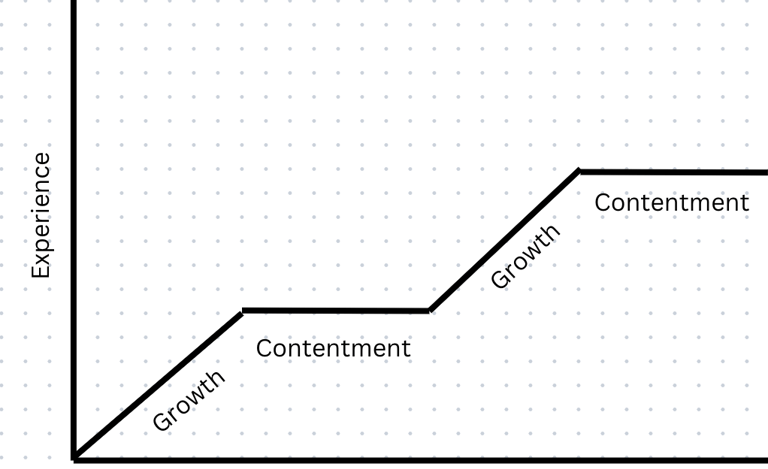How To Fail At Romantic Relationships
I share what I've learned about relationships.
RELATIONSHIPS
12/1/202313 min leer
Lessons:
How we experienced love in the past can shape the framework of how we share and define love in our romantic relationships.
Creating a "love" checklist and filtering may be effective and efficient, but doesn't always work.
Learning to be comfortable being alone and independent is a key element to our overall happiness. Once we are comfortable being wholly ourselves, we can fully show up for a relationship.
Developing boundaries and understanding what is and is not acceptable in a relationship is critical.
Effective listening and communication is the cornerstone to a healthy relationship.
The importance of timing can significantly impact how we show up in our relationships.


All types of relationships are tough, but I've found the most challenging in my life have been the romantic ones. I'm what most people call a serial monogamist, which is a person who moves from one romantic relationship to another very quickly, spending as little time single as possible. I've predominantly had long term relationships ranging from two to five years, and I spent very little time (roughly one to three months) between each subsequent relationship. My latest relationship, which ended in June, lasted only about four months. The joke amongst my friends is either I'm becoming better at identifying my boundaries (more on that later), or my partners just get sick of me much faster. Either way, over the last six months, I've been reflecting on the common threads as to why my relationships didn't work. I hope to help those challenged in their own relationships by sharing areas which I find myself continually struggling with.
Checklists are made for grocery shopping and to-dos, not for dating... (yeah, I know.. duh!)
I first started seriously dating right after university, and I had no clue what I was doing (I'm still single, so... not much has changed). With the lack of experience, I had somehow distilled down what I thought I wanted in a girlfriend through the lens of what I had observed over the last two decades of my life. As I pursued dating, I used this arbitrary list of qualities which I thought would create the perfect girlfriend/future wife. Little did I know that with limited life experience, dating experience in particular, I actually had no clue what suited me best. More importantly, I didn't even really know myself that well. I had lived my entire life on the straight and narrow and established myself to be the "good Asian son". I received a respectable education, acquired a coveted job at a Big 4 accounting firm making the BIG BUCKS ($38,500 a year, which in hindsight ended up being less than minimum wage after the overtime), and was living on my own in Vancouver, BC. I felt I made it; so my next task was to find my future wife! Little did anyone know, but I was miserable and really disliked my life prior to meeting my first girlfriend (on this note in a future post).
Don't judge me please, but here was a portion of my list -> Asian, shorter than me, university educated, spoke/understood Cantonese (despite not knowing how to speak myself), family oriented, wanted kids, liked sushi, and enjoyed travelling. I know a lot of this list is pretty generic, but something I realized over the years was that I was trying to create a list of criteria based on what would make my family happy rather than myself. I'm not saying that many of these criteria aren't important, but I didn't even consider whether this "perfect partner" would have similar goals or a compatible vision, whether we would make each other laugh, could stand each others' little quirks, or just be able to sit in silence together. All that didn't matter, I figured I'd just be able to grit out the small things like my parents had all these years.
All of my past girlfriends are amazing women and after introducing them to my family, they were all adored and accepted into the family. I felt like I had achieved my goal of finding the perfect girlfriend, but perfection is a mirage that never lasts. Overtime, each of my girlfriends and I started to see the cracks in the shaky foundation that I had created, because I had deceived myself into thinking that perfection based on my arbitrary criteria. These criteria were helpful in identifying women that had certain qualities, values, and lifestyles, but I had not done the work to ask myself the truly hard questions:
Was I seeking a partner because I was lonely and seeking affection?
Had I established healthy boundaries before bringing someone into my life?
Do I have the aptitude and emotional intelligence to communicate effectively?
Was the timing right in my life to be able to dedicate my energy, time, effort, and finances.
Lesson - Filters and checklists are one of the most efficient methods of achieving an end goal, in particular knocking items off a to-do list or a grocery list, but not an effective dating strategy. Using filters can be helpful tool once you have a clear and thorough understanding of what is important to you.
Understanding Love
How we define love is heavily impacted by the interactions we had in the past and it can create the framework which we build our romantic relationships on. Some of us design our love blueprints based on Netflix ROMCOMs, our parents' or friends' relationships, romantic novels, COSMO/GQ Magazine, etc. My romantic blueprint was influenced by the relationship between my parents; it was one of the only relationships that I observed while growing up. Their interactions impacted what I desire (and what I try to avoid) in a relationship; and this had significant ramifications on how I showed up in my relationships.
Before, I begin, I want to caveat this by saying that I love both of my parents and do not judge their relationship. They have always shown me love and affection in their own way, and I am sharing my experience to give context to the lessons I've learned.
I was raised in a traditional Asian household where emotions weren't expressed and in many cases suppressed. Affection was shown through action rather than verbally or physically communicated. I never heard my parents say "I love you" to each other or witnessed them hold hands, kiss or for that matter sleep in the same bedroom (although, somehow I ended up with a younger sister). Despite the lack of outwardly expressing their affection, I knew that they cared for one another and our family through their sacrifices and actions. Most arguments revolved around finances, time and other expectations which made me feel love was made to be pragmatic rather than romantic. It appeared as though marriage and companionship was more based on the end result (bigger home, more trips, newer car, better education, having superior kids than your neighbour, etc). I started to believe that relationships were designed to be transactional, where the time, effort, money, energy, etc. that one puts into the relationship should be matched tit for tat by the other partner, and not all of these elements were weighed equally. In many respects, I felt there was a mysterious equation in which partners calculated the combination of elements to derive a sense of happiness and fulfillment. I had limited exposure to other relationships to counterbalance my reality of a romantic relationships, so I began to mirror the same mentality and actions of my parents into future relationships. How was I supposed to know any better? It only took years of dysfunctional relationships for me to realize that I brought a distorted view of love, communication, and intimacy.
Lesson: It is pivotal to evaluate the influences that have helped build our love framework (for better and for worse). It's very easy to fall into similar patterns which we have experienced. Until we fully understand how these patterns have affected us, this can lead to challenges in our current and future relationships.




Loneliness and being alone are not the same thing
Being alone always scared me. I have an older and younger sister, and some would say that I developed "middle child syndrome". I started working at the age of eleven in my grandparents' restaurant and helped take care of my sister who is four years younger, while my parents worked. Outside of school and sports, I had limited time to cultivate many friendships which led to feeling isolated and lonely. I turned inward in many situations when it came to dealing with challenging circumstances and/or managing emotions. I began attributing the feeling of loneliness with being alone. I hadn't matured enough to be comfortable being by myself and in my own skin. I developed a dependency on my romantic relationships to fend off the fear of being alone and the resulting feeling of loneliness. During the last six months, I have been practicing the act of sitting in my thoughts and through the mixed emotions of being alone. This has led to more inner peace and less dependency on a significant other to give me a sense of comfort. This has resulted in more confidence to stand firm on my boundaries, rather than succumbing to fear of being alone and staying in relationships that aren't the right fit.
Lesson - Learning to be comfortable in one's own thoughts/emotions and understanding that one can be alone but not lonely can help prevent acts of dependency on a romantic partner. Being able to cultivate a feeling of peace in solitude is one way to avoid the trap of falling for a person that isn't right for you simply because you desire companionship.


Developing Boundaries
I have always been terrible with creating healthy boundaries with partners. I stick to my primary values, but when it comes to establishing boundaries around my commitment to the time, finances, effort, and sacrifices in a relationship, I tend to overcommit myself which has led to miscommunications and resentment. Relationships require sacrifices from both partners; however, my anxiety around being lonely crippled my ability to say "no" when it came to overstepping my own boundaries for what I could commit to a relationship. Without ever establishing or communicating (more about effective communication below) what my girlfriends and I were able to commit, I just assumed they wanted more of my time, affection, effort, etc. Built out of my own insecurity, I thought I would not be worthy of their affection unless I demonstrated what I was willing to sacrifice for our relationship. As a result, I compromised my boundaries: I reduced my training time to spend time together, spent less money on myself to save for our future, moved to places that I didn't feel comfortable, and/or stopped seeing certain friends because they didn't feel secure. These actions seemed innocuous at the time, but it bred resentment in our relationship, because I didn't feel appreciated or desired by making these sacrifices. Little did I know the I was missing one of the most critical components of all relationships: effective communication.
Lesson - Spend time to understand what is important to you. By investing the time to establish boundaries which you are willing to stand firm on, it allows both partners to understand what each person is willing to bring to the relationship. These boundaries can help determine whether there is compatibility and also makes it more transparent when tough discussions need to be had. A boundary can be fluid and molded to suit a partner once discussed, but effective communication is necessary (see below).


Effective Communication
I used to pride myself on being an effective communicator when it came to being a leader on a sports team, in my business, and in my friendships; however, those communication skills went out the door when it came to my romantic relationships. I made unjustified assumptions about how my girlfriends and I would interact with each other, and we never established best practices to resolve conflict.
In Gary Chapman's book The Five Love Languages, he discusses the five primary ways in which we communicate and receive love: words of affirmation, acts of service, receiving gifts, quality time, and physical touch. Over time, we develop our own love hierarchy (you can take the quiz here -> The Five Love Language Quiz) and this can shed light on the best ways our partners can express love to us and better understand how they desire being loved. My primary love languages are words of affirmation and physical touch, and I primarily show my affection towards the people I care about with quality time and acts of service. A challenge I faced was expecting my partners to communicate their affection to me in a specific manner but not adapting the way I demonstrated my care and love to suit their needs. I believe by being more attuned to their love hierarchy and understanding their specific needs, it would have led to more fruitful conversations and more balanced interactions. Furthermore, I think this would have led to less conflict in our relationships.
John Gottman, a researcher and clinical psychologist and a prolific author of relationship health based books, discusses The Four Horsemen of the Apocalypse. Each of the horsemen represents a different communication style during conflict: criticism, contempt, defensiveness and stonewalling, and when they present during conflict resolution, they can be indicators of an unhealthy relationship and possibly to it's end. I've been guilty on many occasions of communicating with each horseman:
criticizing/attacking my partner's character rather than voicing a complaint about a specific issue
expressing a level of contempt through sarcasm or using poor body language to demonstrate a level of moral superiority (being a "logic bully" - as Adam Grant would call it)
showing defensiveness through reverse blaming or attempting to deflect ownership over an issue I created
stonewalling by escaping the conflict by physically leaving or withdrawing from the conversation by being silent
By demonstrating my lack of understanding of effective communication, I created an environment which was difficult for my partners to feel safe. I have been actively reflecting and trying to modify my reactive personality and better understand the emotions that arise during conflict.
Lesson - Developing tools to communicate the needs of both partners and creating an environment which cultivates open communication can make it easier to manage conflict. Effective communication and openness to seeking understanding can bridge the gap between two individuals who come from two completely different life experiences and history.


The Importance of Timing
One final element that heavily impacts the compatibility of two people is timing. Age is not always a factor when it comes to timing, because each individual brings to the relationship varying experiences, desires, challenges, knowledge, etc. I believe that each individual goes through periods of growth and contentment (see diagram below).


In summary, I don't have love figured out (can love ever really be figured out?). Heck.. I'm still single, and that is ok. I thought that I was broken, undesirable, unloveable, and unwanted after each of my relationships dissolved. However, after reflecting on those past heartbreaks, I just have to continue working on being a better version of myself and in time it may or may not happen. If you're in a similar position, try not to be disappointed or discouraged (I know... easier said than done); just remember that if you continue working at being comfortable alone (Lesson 3), then you're never really going to ever be lonely:).
Thank you to all of my past loves for being patient with me and teaching me how to love.


On the X-axis, time is continually progressing and based on the types of experiences (Y-axis) we desire will dictate whether we are in a growth phase or contentment phase. This diagram will apply to various aspects of life whether it is our physical health, education, career, business, family, etc, this can be applied to each aspect independently. The one caveat is that given the amount of physical and/or emotional energy, desire/motivation, finances, etc, we will allocate these limited resources to the things that are most important to us. When a significant other enters the picture, the success of the relationship may be contingent on how the periods of growth and contentment overlap with one another in these respective areas of life.
It's rare that two individuals perfectly align, but depending on the availability of the resources and whether they can be reallocated when a partner enters into your life, it is possible to make a relationship flourish. If one person or both aren't willing or capable of reprioritizing their own needs/desires, it may compromise the success of the relationship. I found that I prioritized my own desires for growth over the needs of my partners and it lead to a lack of support in the areas they felt were important. My girlfriends had reached different levels of contentment in their various areas of their lives, while I was trying to build my business, compete in triathlons/marathons, and continue developing my mind/body. This left me depleted of resources to allocate to making our connection stronger and building the emotional trust that is needed in a healthy relationship. I now realize that being cognizant of the areas where both you and your partner are in (either the growth or contentment phases) may bring you closer or could drive you apart. Alternatively, if both people are willing and capable of effectively communicating their needs and priorities, it can lead to an ever-growing bond.
Lesson - Understand where you are growing and content and assess whether you are willing to modify areas of your life to bring another person onto the journey. You may meet someone that appears to match for you but the timing isn't right, so maybe it'll require some modification to goals, timelines, and other desires to make it work. At the end of the day, everything requires compromise, but truly understanding yourself, effectively communicating, and assessing your own timeline can greatly improve your chances of a successful match.


